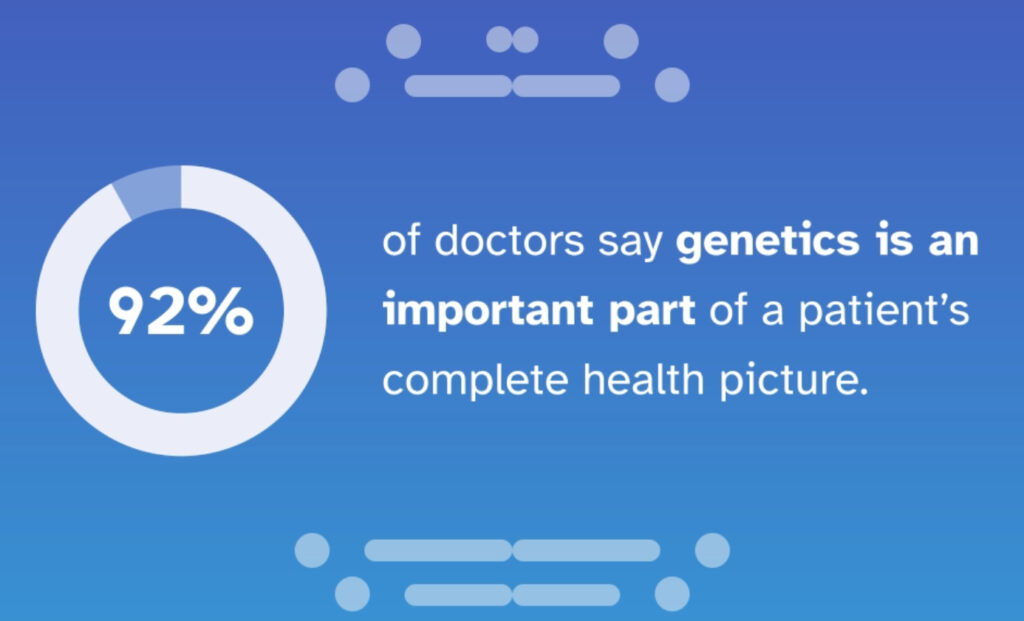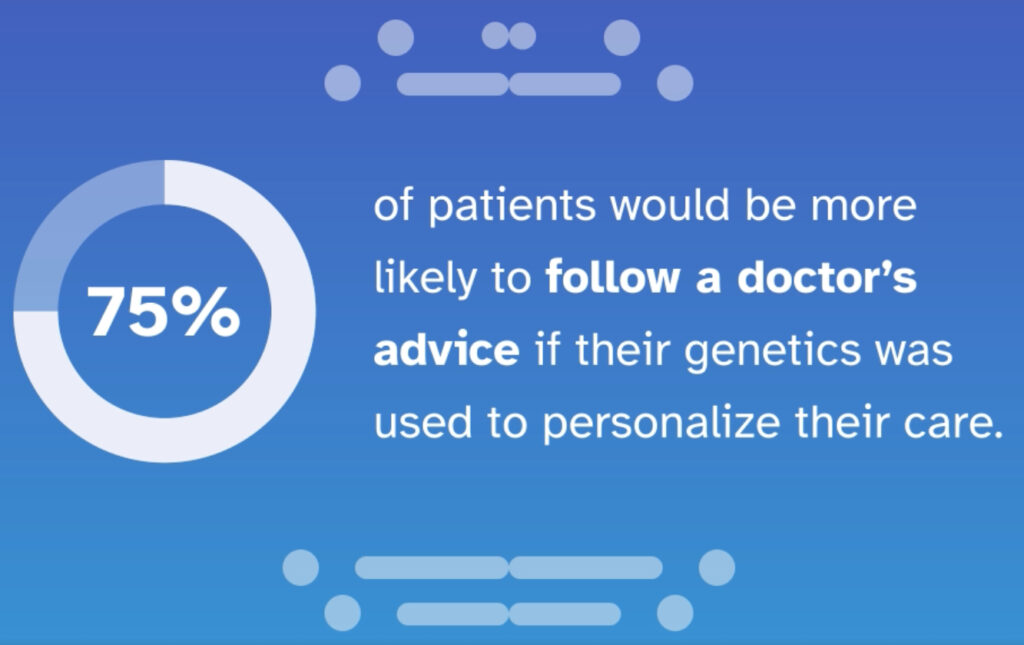Two new surveys find that most consumers and doctors believe genetic testing could help make healthcare more personalized.
Three-quarters of people surveyed said they’d be more likely to follow their doctor’s advice if their doctor used their genetic profile in tailoring that advice. Sixty-six percent of doctors said using genetic testing could help lead to better outcomes for patients.
“I am excited about a future where genetic information becomes the foundation of personalized health,” said Anne Wojcicki, 23andMe CEO and Co-Founder. “Since starting the company, 23andMe has been focused on helping our customers — and the world — benefit from genetics based prevention and treatment.”
Genetic Data and Your Health Profile
The data comes from two national surveys on attitudes from primary care physicians and the general population about the role genetic testing might play in healthcare.* From the responses, both consumers and doctors believe genetics is essential. Among doctors, 92 percent said that genetics is integral to a patient’s health profile.

Among the general population, 75 percent said they would be more likely to follow a doctor’s advice if they knew their genetic profile was used to personalize their care.
But few people say they’re getting the kind of care tailored to them. Most people surveyed, 62 percent, said they wanted advice from their doctors tailored to them personally. However, only 36 percent said that’s what they were getting. The survey also found that many people were unsatisfied with their current state of health. More than half saying they don’t feel healthy and 63 percent saying they don’t feel in control of their health.

Doctors’ Attitudes
For doctors, the survey revealed that testing could offer a way to connect with their patients and engage them more with their health. Sixty-two percent of doctors today say that genetic testing can help them provide more personalized care.
The survey of doctors is the third in a series of research surveys gauging doctors’ attitudes about genetic testing conducted by Medscape since 2018. It showed a marked change among physicians. This shift in attitude from doctors toward genetic testing and its potential use in care is starkly different than it has been in the past. Primary care physicians are much more aware of genetic testing and open to using it with patients.
More Doctors Have Themselves Tested
The survey showed a significant shift in the number of cases they had in which genetics was a factor. For example, in 2018, only about three in ten doctors regularly saw patient cases involving genetics.
In this latest survey, more than half, 51 percent, of primary care physicians surveyed said they encountered one or more clinical cases a week where genetics plays a role. In addition, 34 percent of doctors in the 2022 survey said they had personally taken a direct-to-consumer genetic health test. In 2020 only about 7 percent of doctors said they’d taken a direct-to-consumer genetic health test.
You can find out more about the surveys here.
*Based on 2022 surveys designed by 23andMe, Medscape, and Material Holdings LLC of approximately 1,000 doctors and approximately 1,500 patients in the U.S. ; Based on 2019 survey designed by 23andMe and M/A/R/C Research of approximately 1,000 23andMe Health + Ancestry customers.




